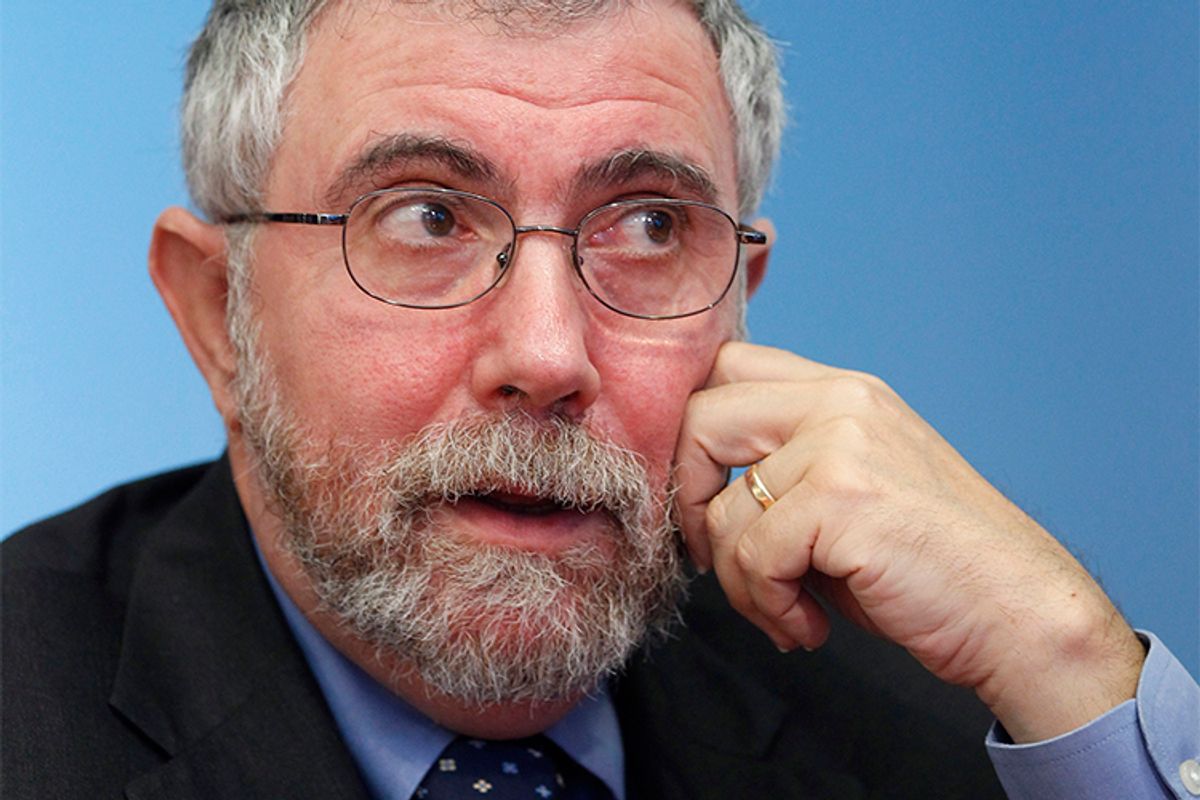In his latest column for the New York Times, award-winning economist and best-selling author Paul Krugman says that despite new studies showing higher inflation would benefit the U.S. economy, American policymakers are unlikely to do anything for one chief reason: because the "oligarchs" who fund our elections don't want to see their holdings decrease in value.
Krugman builds his argument off a new report from the IMF, which included in its analysis a strong implication that an inflation target even higher than the one the U.S. has currently (to eventually get it to around 2 percent) is too low for promoting more growth and more universal prosperity. Yet despite its own work, Krugman says, the IMF appears unwilling to outright endorse a higher inflation target.
"So what makes the obvious unsayable?" Krugman asks. "In a direct sense, what we’re seeing is the power of conventional wisdom. But conventional wisdom doesn’t come from nowhere, and I’m increasingly convinced that our failure to deal with high unemployment has a lot to do with class interests."
Krugman hasn't dropped his famous theory of Very Serious People promoting sadomonetarism, however. Instead, he writes that the VSP embrace "painful" remedies to economic stagnation — rather than higher inflation or other ways to reduce unemployment and increase aggregate demand — in part due to "class interests":
[B]ehind this attitude, one suspects, lies class bias. Doing what America did after World War II — using low interest rates and inflation to erode the debt burden — is often referred to as “financial repression,” which sounds bad. But who wouldn’t prefer modest inflation and a bit of asset erosion to mass unemployment? Well, you know who: the 0.1 percent, who receive “only” 4 percent of wages but account for more than 20 percent of total wealth. Modestly higher inflation, say 4 percent, would be good for the vast majority of people, but it would be bad for the superelite. And guess who gets to define conventional wisdom.
Now, I don’t think that class interest is all-powerful. Good arguments and good policies sometimes prevail even if they hurt the 0.1 percent — otherwise we would never have gotten health reform. But we do need to make clear what’s going on, and realize that in monetary policy as in so much else, what’s good for oligarchs isn’t good for America.



Shares